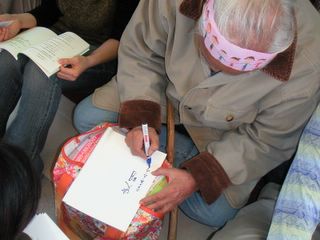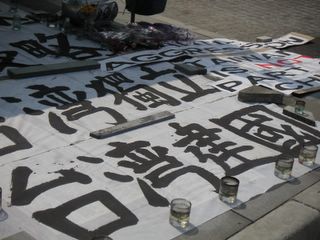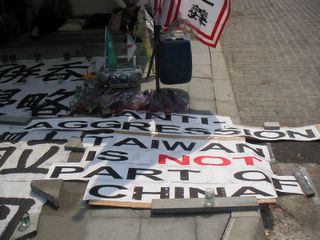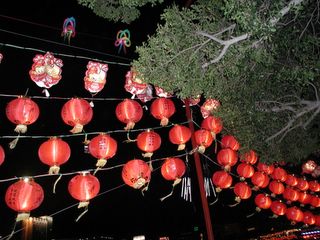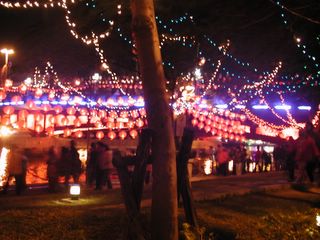Thorn In My Side
I teach at a private college. In Taiwan the national, public colleges and universities receive more funding from the government, which in turn affects the quality of teaching staff (i.e. non-PhDs) and calibre of students attracted. So here the cliche is a private school of students from wealthy families- who can afford the higher tuition, students didn't have the grades to enter a national college, who haven't had to work very hard for the life of privilege that they've had.
Sometimes its so discouraging, hopeless, exhausting- when your students are not motivated to learn, unenthusiastic about class, or unable to follow or comprehend what's being taught. It's like pullling teeth and what does one do if your students won't talk in an English conversation class?! It takes its toll and is enough to send a teacher into a feeling of apathy. This is a feeling that was recently shared and confirmed by one of my colleagues in the English department. But I never resign myself over these challenging situations.
After the first few weeks of pushing and pulling, there usually comes a point in the semester, a point at which I need to reassess the situation. With patience and understanding, I usually discover the root of the problem and things get better. Some classes require extra attention and I inevitably need to just sit down and organize myself and re-adjust my teaching strategy or methods. Usually, I've become so wrapped up in my other outside projects or priorities that I haven't taken the time to be mindful of a particular class's needs.
Sometimes it's simply about making the class interesting and relevant to the students. Sometimes its about teaching at the students' level which in some cases might be lower than required for the textbook they are using. Sometimes its about positive reinforcement and encouragement- creating a safe environment for them to practice speaking English. Sometimes its about providing structure and clarity of the course goals.
I'm happy to say I've found a way to remove this semester's "thorn in my side." The little light bulb has been switched on, my students are starting to get it. They see where I'm going with the direction of this class. This class is a particular challenge because I'm trying to get my students to work in groups. A group project requires group discussion (i.e. self-initiated conversation), expressing of their personal opinions and independent work outside of class- all in English.
I insist on a 100% English speaking classroom and teach my classes completely in English. Since English is a foreign language, the language barrier often masks difficulties or manifests itself in different forms- boredom or defiance (by students who zone out or can't understand what is being said or taught in class), shyness (by students who are unable to express themselves as they normally would in their mother tongue). I've seen this happen to students who are normally gregarious and outgoing- transformed into uncertain, tentative speakers.
I think many people who learn a foreign language and are then suddenly immersed into that language's speaking environment experience this transformation and frustration.

